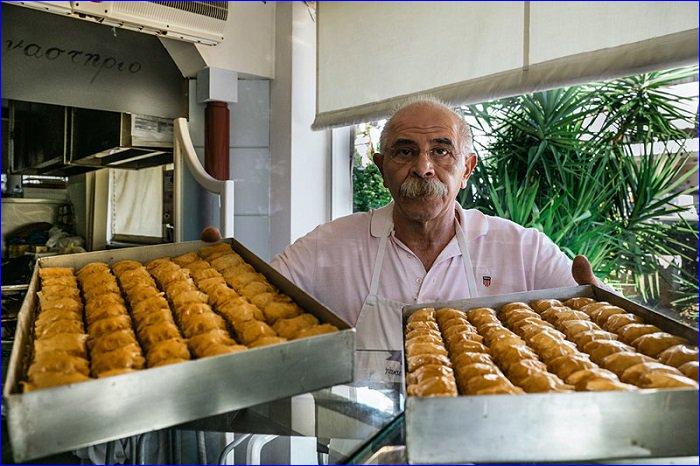


The history of this scrumptious delicacy is quite controversial, and unfortunately not very well documented. Many ethnic groups such as the Greek, Turkish and Middle Easterners claim baklava as their own, and prepare it in their own way.
The "Baklava Conflict" has been simmering for centuries, but it erupted into full-blown war in 2006, when Greek Cypriots decided to call baklava their own. A definite sacrilege according to the Turks!
Turkey, as an aspiring member of the EU, took the issue to Brussels. Eventually in 2013, the EU awarded the "protected status" prize to the Turkish Gaziantep baklava, shuttering the dreams of Greeks worldwide.
The Gaziantep baklava, described as a "pastry made of layers of filo pastry filled with semolina cream and Antep pistachio", became the first Turkish product to receive the coveted status.
History
One version of the story claims that baklava origins to the mighty Assyrians, who had been preparing it as early as the 8th century B.C. by layering unleavened flat bread with chopped nuts in between, drenching it in honey and then baking it in primitive wood-burning ovens.
The modern day baklava went through a number of transitions as the history of the area kept on changing. Middle East, Eastern Mediterranean, Balkans, Caucasia; Turks, Arabs, Jews, Greeks, Armenians, Bulgarians of today who introduce baklava as their national dessert, were all part of the Ottoman empire once.
It is said that ancient Greek seamen and merchants traveling to Mesopotamia soon discovered the delights of baklava.
They brought the recipe back to Greece and modified it slightly.
Their major contribution to the development of this pastry is the creation of a dough technique that made it possible to roll it as thin as a leaf, compared to the rough, bread-like texture of the Assyrian dough.
In fact, the name "Phyllo" was coined by Greeks, which means "leaf" in the Greek language.
Some historians claim that baklava recipe has its roots in ancient Greece, where they made the 'gastrin', a sweet very similar to the current baklava.
Others say that baklava originates from the Byzantine era. Greek professor Speros Vryonis, defends the Byzantine thesis by creating similarities with a Greek dessert called kopton.
American journalist, Charles Perry, dismisses this theory arguing instead that baklava is a culinary fusion of Turkish Central Asian flaky preparations and Persian fillings made from cooked dried fruits (nuts, hazelnuts, peanuts).
Whatever the historical controversies, the fact remains that baklava is a delicious traditional dessert made of layers of crispy golden brown phyllo, filled with chopped nuts and garnished with lemon scented syrup... Just heaven!

or register to post a comment.